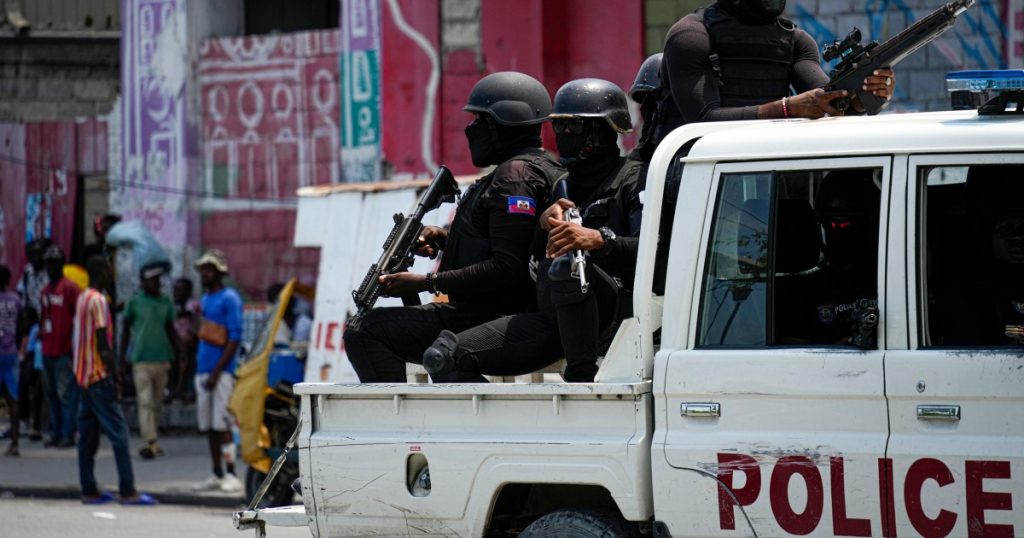Haiti’s transition council recently took power in a formal ceremony, marking the resignation of former Prime Minister Ariel Henry. The council is working to establish security after years of gang violence causing chaos and misery in the country. Michel Patrick Boisvert, the finance minister, will serve as interim prime minister until a new head of government is appointed, along with a cabinet and provisional electoral council for future elections. The council aims to address urgent issues such as security, constitutional reform, economic rebuilding, and judiciary system renovation.
With the total collapse of institutions and government failure in Haiti, the new transition council is seen as a crucial step towards stability. The council plans to focus on security, a national consultation on constitutional reform, preparing for upcoming elections, restructuring the judiciary system, and revamping the economy. As the council was sworn in, reports emerged of violence across the capital, highlighting the urgent need for a stable government to address the escalating crisis in the country.
Armed gangs, armed with weapons mainly trafficked from the United States, have been a major source of instability in Haiti, with the recent resignation of Prime Minister Henry leading to increased calls for a revolution. The transitional government, which will be in place until February 2026, has a challenging road ahead in addressing security concerns, restoring basic services, and preparing for democratic elections. The international community, including the United Nations, has supported the transition council’s efforts to deploy a multinational security mission to restore stability and provide assistance to Haiti.
The complex interregnum in Haiti, characterized by political turmoil and gang violence, requires swift action from the new authorities to address urgent issues and restore security. Tensions within the council and competing factions vying for power could further complicate the path to stability. Financial transparency and accountability are crucial for the new authorities to gain public trust and demonstrate a commitment to breaking with the corruption of the past. The council’s actions in the coming months will be closely watched as they navigate the challenges of governance and security in Haiti.
Diplomatic support from foreign countries, including Kenya, has been crucial in assisting Haiti during this transitional period. The international community has emphasized the need for swift governance reforms and the deployment of the multinational security mission to address the country’s security crisis. Despite concerns about past international interventions in Haiti, many are hopeful that the mission could help restore security and pave the way for democratic elections. The United Nations estimates reveal the devastating impact of gang violence on Haitian civilians, highlighting the urgency of addressing security concerns and providing essential humanitarian aid.
Overall, the establishment of the transition council in Haiti marks a crucial step towards restoring stability, security, and governance in the country. The council’s priorities include addressing security challenges, initiating constitutional reforms, rebuilding the economy, and holding democratic elections. With the support of the international community and diplomatic partners, Haiti’s transitional government faces a daunting task ahead but has the opportunity to rebuild a stronger, more resilient nation for its citizens. The road to recovery will be challenging, but with concerted efforts and effective governance, Haiti can overcome its current crisis and build a more prosperous future.


